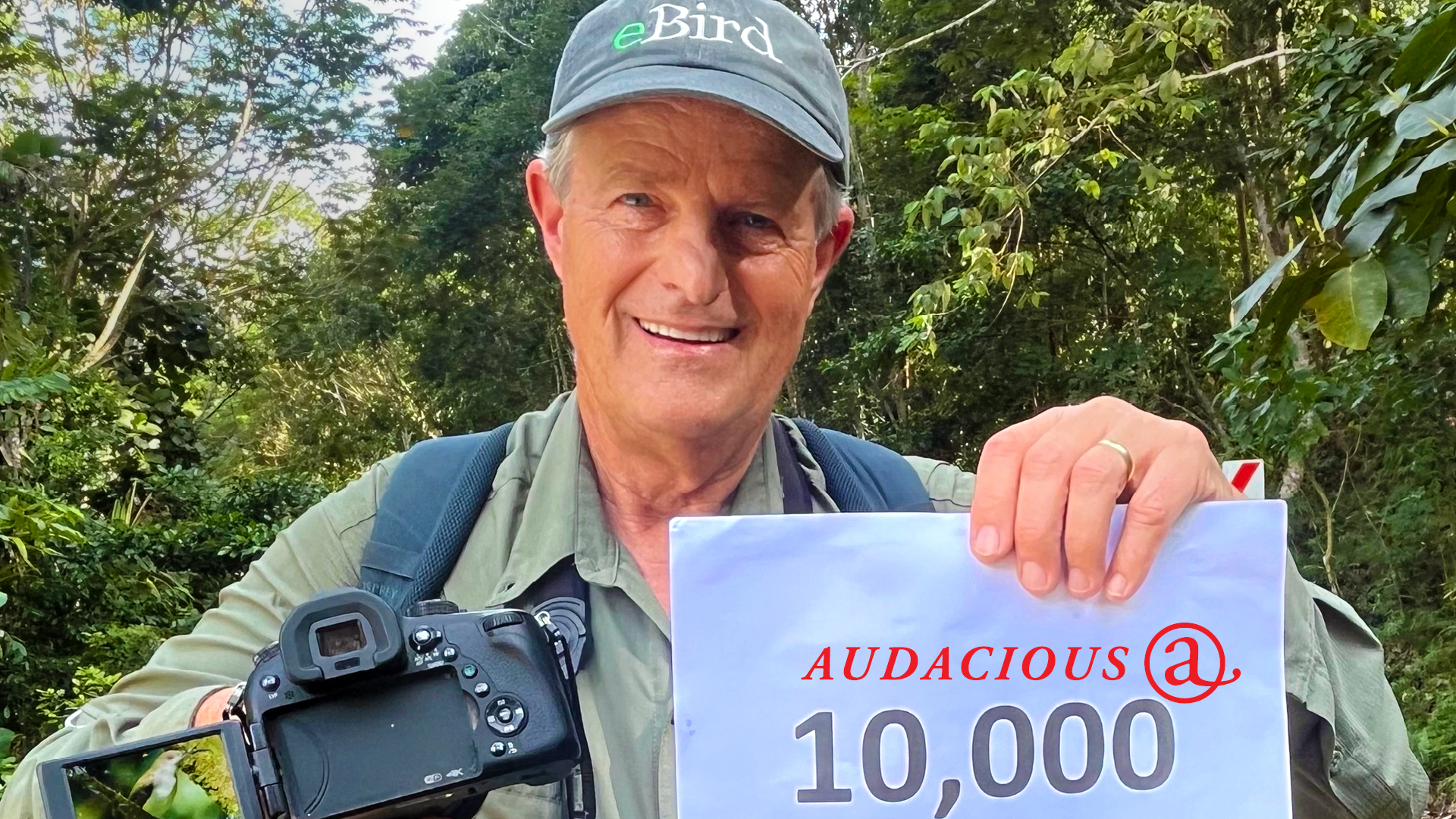A version of this article also appears in the print edition of Friends School of Baltimore’s Middle School newspaper, The Raspberry Donut.
On September 11th, 2001, Friends alum Peter Kaestner, class of ‘71, was on a plane from Frankfurt to Atlanta when he noticed something strange. A US diplomat who had worked all around the world, he had flown this route many times. So he knew what it was supposed to look like.
“When you fly from Europe to the United States, it’s one big left turn,” Kaestner says. “And all of a sudden we started turning right. And I said, ‘Something is not right.’ ”
Kaestner was right. Almost immediately, the pilot announced an emergency landing.
“[He told us] ‘There’s an indicator light. They don’t think that it’s anything serious, but we have to stop and get it checked out,’ ” Kaestner remembers. “It was a lie.”
None of the passengers knew it at the time, but in New York City, two hijacked planes had just crashed into the Twin Towers – otherwise known as the World Trade Center. Within the hour, the towers would fall and almost 3,000 people would be dead. America’s airspace was closed to all planes. Kaestner wasn’t getting home to Guatemala that day.
Instead, his plane, Delta Flight 15, landed in Newfoundland. There, at an airport outside the small Canadian town of Gander, they waited alongside dozens of other jumbo jets “that just dropped out of the sky.”
As flight crews desperately awaited news from the US and instructions on how to move forward, Kaestner and the other passengers were stuck on their planes.
“We didn’t know what was going on because we were just sitting in the plane for 24 hours,” he says.
Finally, people were allowed off the planes and ushered onto buses bound for who knew where.
By this time, Kaestner’s worried wife, waiting for back in Guatemala with their two daughters, had learned that he was alive.
“My wife didn’t know what happened, cause she knew that I was flying over New York on that day,” he says. “She eventually found out that my plane was diverted to Canada and landed safely. But for several hours, she had no idea.”
Kaestner wound up in a church in Lewisporte, a nearby town. He spotted some comfy looking chairs at the back and grabbed one of those to sleep on.
“They had a television and we’re just sitting there glued to see the planes crashing into the World Trade Center,” Kaestner remembers.
Over the next three days, he and the other passengers felt the overwhelming hospitality of the small town.
“The outpouring of love and appreciation was just extraordinary,” says Kaestner. “I’m gonna get choked up saying that.”
Community leaders met daily at the church with the “plane people,” to make sure they had everything they needed. Kaester, who had experience in leadership and government, volunteered to be the representative of the people in those meetings.
But there in the church, he didn’t know any more than the other passengers did about what was happening or when they would get home.

“I didn’t have anything to say,” he says, “But just the fact that somebody was there to answer questions and to accept some responsibility, I think helped in our group.”
He wasn’t the only one on his plane with helpful skills. One woman was a professional fundraiser from Ohio. After they left, she raised almost $3 million from the “plane people” to fund scholarships as a “thank you” to the Newfoundlanders who took them in.
“College, university, also vocational school,” he says. “Some two or 300 people have gotten training and schooling based just from our group[‘s donations].”
The Lewisporte Area Flight 15 Scholarship wasn’t the only legacy of their time in Newfoundland. The experience was also captured in a Broadway musical called Come From Away, which came to Baltimore’s Hippodrome Theatre in April 2025, near the end of its North American tour.
Once passengers were able to return to their planes and journey on, Kaestner returned to his home in Guatemala. After a long career in the foreign service, he was able to spend time doing what he really loved and was passionate about: bird watching. Last year, he became the top birder in the world by being the first documented person in history to observe 10,000 species of birds.
Kaestner still thinks back to his time in Canada and what that experience meant to him.
“The biggest lesson I think I’ve learned from that is something that I’ve learned all my life, and it was a big part of going to Friends School. And that is to be appreciative, to be thankful, to count your blessings and to cherish your blessings,” he says. “Not just count them, but really cherish them.”
Kaestner says those were lessons taught to him at a young age, and Friends was a big part of that.
“I feel very much that I’m a part of a larger, very good world. That is based on the values that I learned at Friends School.” So “this experience in Canada wasn’t really life changing. It was life affirming.” Affirming of all the life lessons he had learned before, and all the ways Friends made that possible.


